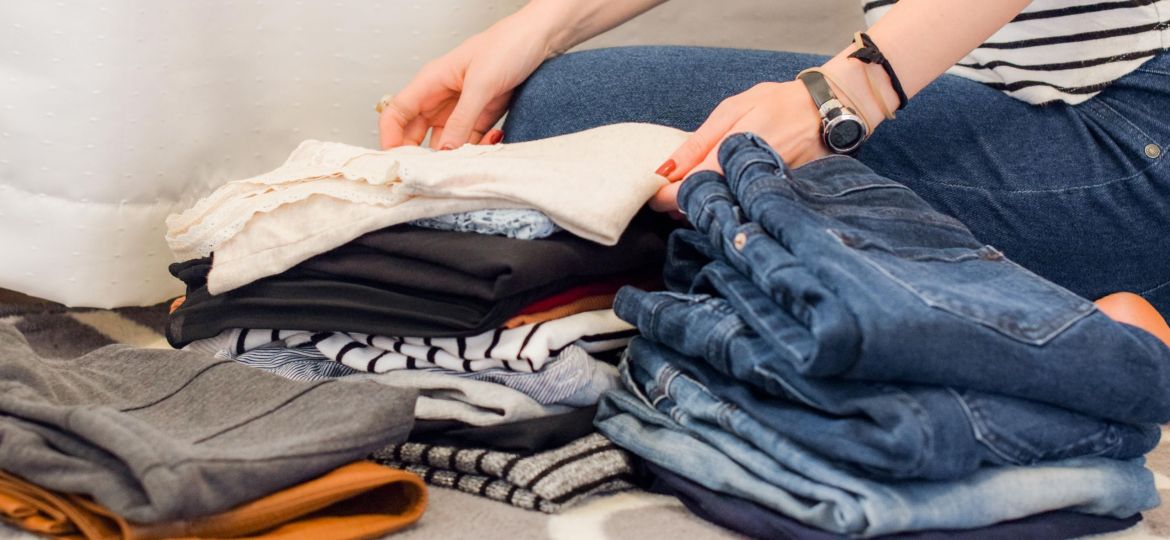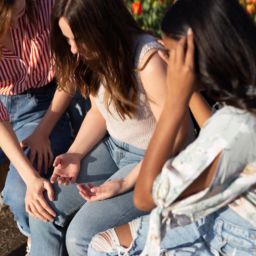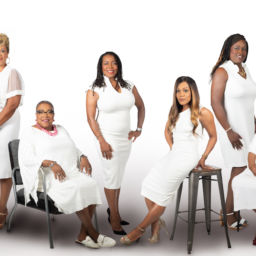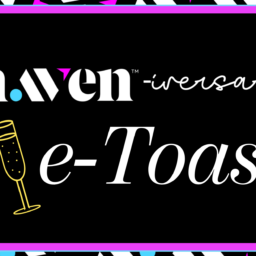
This post was created in partnership with The Baer Minimalist, an Indianapolis home organizing company.
We’ve all been there. You tell yourself you have to keep that ugly painting because it was a gift. Or you need to hang onto those uncomfortable shoes because they cost a little more than they should’ve.
Here’s your permission slip: There’s no better day than today to give away any possessions that don’t bring a smile to your face. Oftentimes we may feel compelled to keep an item, even if it’s not currently serving us, which can lead to a negative relationship with our possessions. (Yes, that’s a thing.) So, how can we transform that relationship into a positive one?
Maria Baer, residential organizer at The Baer Minimalist, let us in on a few of her secrets to creating a space you absolutely love.
So, what does a healthy relationship with your things actually look like?
To Baer, having a space you love means that overall, your possessions evoke positive emotions, and some may even have a sentimental meaning.
“My personal philosophy on ‘stuff’ is that I want to create a space that tells the story of who we are, the people we love, where we’ve traveled, and the experiences that have shaped us,” she says.
Also, it’s important to make sure your space actually works for your lifestyle. If you’re constantly tip-toeing around your possessions, or around your emotions about your possessions, it might be time for a change. Having a functional space means that your possessions serve you and your family in your current stage of life.
And what about a negative relationship with your possessions?
Have you ever felt that weight on your shoulders about an item? That feeling of constantly making excuses to yourself of why you haven’t donated it yet? That emotional weight stems from a negative relationship with your possessions, and according to Maria, can manifest in other areas of your life as well.
“I have worked with so many clients who feel stressed by the items they hold onto, but hesitate to get rid of them for fear they’ll need them someday, or whether the gift giver will be disappointed in them,” Baer said. “I always ask them to put themselves in the gift-givers shoes—do you walk around your friends and family’s homes seeking out all of the past gifts you’ve given them? My guess is no, and neither do they.”
Truthfully, a negative relationship with your possessions looks similar to a negative relationship with a person. It may feel like a lack of support or cause feelings of resentment, to name a few. So, if something doesn’t truly speak to your inner or outer needs, you shouldn’t feel shameful about donating it to someone who really needs it.
But, that’s easier said than done, right?
How can you begin to create a healthy space, surrounded by items that bring you joy?
The first step is to recognize which items you might need to evaluate your relationship with. Baer advises to think about the item and ask yourself, “Does this item bring a smile to my face?” And it may be worth it to get deeper and ask yourself the question twice. Or, if you’re really feeling compelled to keep an item, explaining your reasoning to a second person can help iron out your relationship with it.
“A word of advice when it comes to your things—they are just things,” Baer said. “At the end of the day, you aren’t able to take them with you and they don’t carry the memory. You have the ability to carry your memories along, without the thing taking up physical space.”
One method of carrying on the memories of your possessions is to take photos of them for a sentimental photo book. You can write down the thoughts and stories that accompany the item, and keep the photo book for generations to come.
“Another philosophy to keep in mind is to come to grips with the fact that everything will likely be donated at some point, whether by you, your kids, or a generation down the road,” Baer said. “So do your children or grandchildren a favor and work to keep things that hold meaning, and pass along the rest to those in need now.”
And maybe it’s not all about giving things away, but more repurposing your space to better serve you. Baer advises getting creative with ways to honor those who have passed by celebrating the items you’ve chosen to hang on to. Because your space—and your life—should feel like a celebration.
Interested in donating some of your possessions to people in Indianapolis in need? The Baer Minimalist has crafted this expert, detailed guide of donation resources.
Meghan Stratton is Indy Maven’s Communication Coordinator.





















